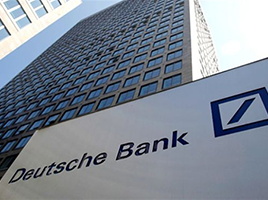In today’s competitive and fast-moving marketplace, companies need technology that not only allows them to position their organization for growth but more importantly, helps them quickly adapt to and remain profitable in the face of constant change and disruption.
Like many industries, my industry, the automotive industry, is in a seemingly constant state of evolution, with manufacturers driving innovation while simultaneously ensuring compliance, accurate demand planning, supply chain elasticity, revenue growth, customer satisfaction, and more. This year, the complexity of meeting these demands have increased due to the COVID-19 pandemic, with the industry facing factory shutdowns and restarts, supply chain insecurity, workforce constraints, safety requirements, and much, much more.

A quality Enterprise Resource Planning (ERP) solution can help businesses handle this complexity and meet the demands I’ve listed above, and many manufacturers rely on them. But the reality is that implementing an ERP is often a huge and time-consuming process that must be planned months if not years in advance. Furthermore, ERP is not cheap and the costs associated with shelving one system and then choosing and installing a new one can be enormous. Selecting the right ERP can be daunting and one of the most significant decisions a company must make is deciding whether to implement a generic or an industry-specific ERP solution.
There are plenty of generic ERP solutions to choose from. These non-industry, non-vertical-specific solutions are supposed to be ready to go, out-of-the-box. They typically include a wide range of functionality. But while they may include the functionality needed by a company in any number of industries, they can also include functionality that a company in a specific industry probably won’t need. For example, functionality built for retail and banking have no place in manufacturing and can slow down and complicate successful implementations. That might be fine, or it might not be depending on the price of the software and your implementation timetable. But why pay for functionality that you don’t need? Additionally, generic ERP solutions are often difficult to adapt to last-mile needs, because they are complicated and often expensive to customize.
I work in the automotive industry and it provides a great argument in favor of choosing an industry-specific ERP. Automotive manufacturers face growing customer demand for alternatives to the internal combustion engine. That means producing electric vehicles, autonomous vehicles, and the parts and systems to make those things a reality. While attempting to meet this growing demand, however, quality and customer satisfaction must remain job #1. Recalls and quality-related issues can negatively impact an original equipment manufacturer’s (OEM) brand or damage a supplier’s relationship with its customers. As a result, the supply chain and automotive plants must transform their organization to meet new business realities while maintaining profitability, providing high-quality products, and delivering on-time, all in the face of a once-in-a-lifetime pandemic.
Each industry faces challenges specific to that industry and any ERP selection process should begin with an assessment of exactly what functionality the company needs. Here are my top reasons that manufacturers should choose an industry-specific ERP. Since my expertise is in the automotive industry, I will use that industry as an example.
Reduced Costs and Faster Implementation: Because generic ERP solutions are not built to meet the demands of a specific industry, they often have to be customized or supplemented with integrations and add-ons. These modifications can take a long time, cost a lot of money, and make an ERP solution rigid, which we call version lock. In addition, customizations have to be rewritten each time a manufacturer upgrades its ERP system. An example from the automotive industry would be customer and supplier demand variance reports that show you how demand has changed over any period in time. If your ERP solution doesn’t provide these, it will reduce your ability to compete.
And because it doesn’t usually need to be customized, an industry-specific ERP solution takes less time to implement. It’s already got the needed functionality built-in and the vendor has the expertise to set it up quickly. Implementing a generic ERP solution can take a long time due to a lack of a fully documented system of processes, procedures, and a core model implementation template that is already developed to address the needs and best practices of the industry.
Customer Requirements and Industry Best Practices: There is a tremendous benefit gained by selecting an ERP provider that has domain knowledge in your industry and with your customers. Choose an ERP partner that actively leads and participates in industry organizations, like the automotive industry groups AIAG (Automotive Industry Action Group) and Odette International, and builds functionality into its solutions based on the industry-knowledge gained. In the case of the automotive industry, this functionality can include best practices-based process maps, training courses, and regulatory compliance features. Additionally, OEMs and other customers have specific requirements and approvals that you must meet to do business with them, such as EDI and barcoding. Generic ERP solutions most likely include none of that.
Support for Industry-specific Regulatory and Industry Requirements: Functionality supporting industry-specific compliance, for example, with IATF 16949 (quality) and MMOG/LE (supply chain) in the automotive industry, can be included and updated as regulations evolve. The ability to quickly meet shifting internationalization regulatory requirements and adapt to structural changes in the industry is essential to automotive suppliers’ long-term success. Automotive manufacturers should choose a solution that supports global compliance in the areas of quality, delivery, and financial accounting practices.
Adaptability Through an Industry-specific ERP Platform: With the right platform, you can achieve greater levels of fit today while supporting the changes of tomorrow. You can extend and create new applications that are dependable and scalable without creating version lock-in. When upgrading is fast and easy, you can stay current and reduce the gap between your ERP and changing business requirements. You can also simplify the adoption of new capabilities and advanced technologies, pursue continuous improvement, and adapt to future disruptions and changes as they occur in your business.
Choosing an ERP solution can be a long and arduous journey. I believe that most manufacturers should consider choosing an ERP that is both manufacturing-focused and that has a proven track record in their respective industries. The best choice for speed-to-value will include industry best practices and easy onboarding of proven processes and capability. This choice not only drives faster implementations but also ensures greater fit out-of-the-box.




